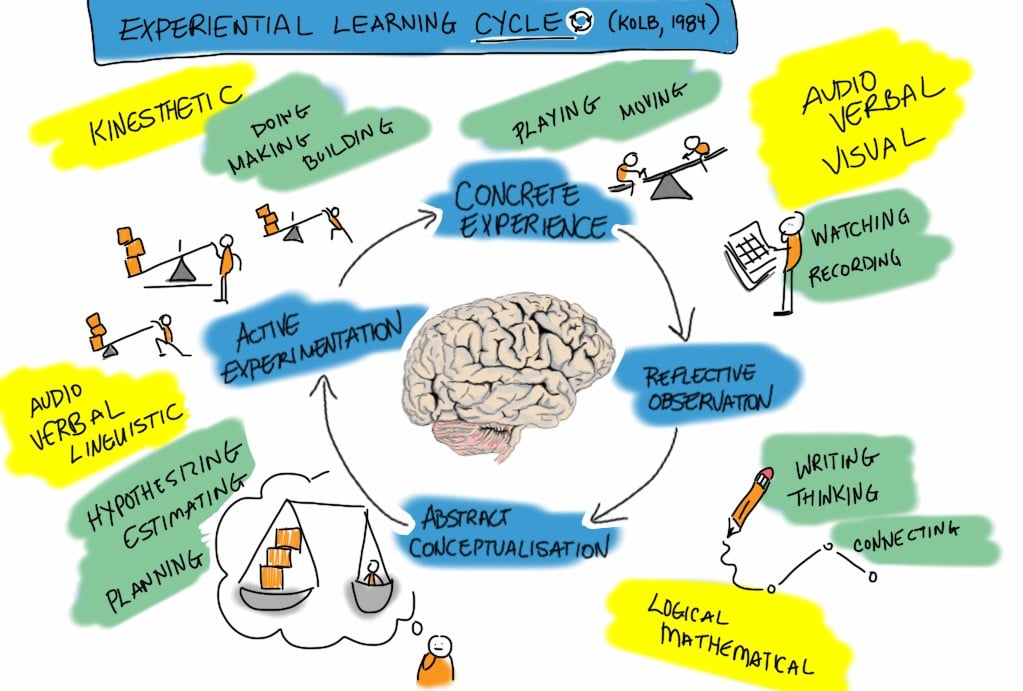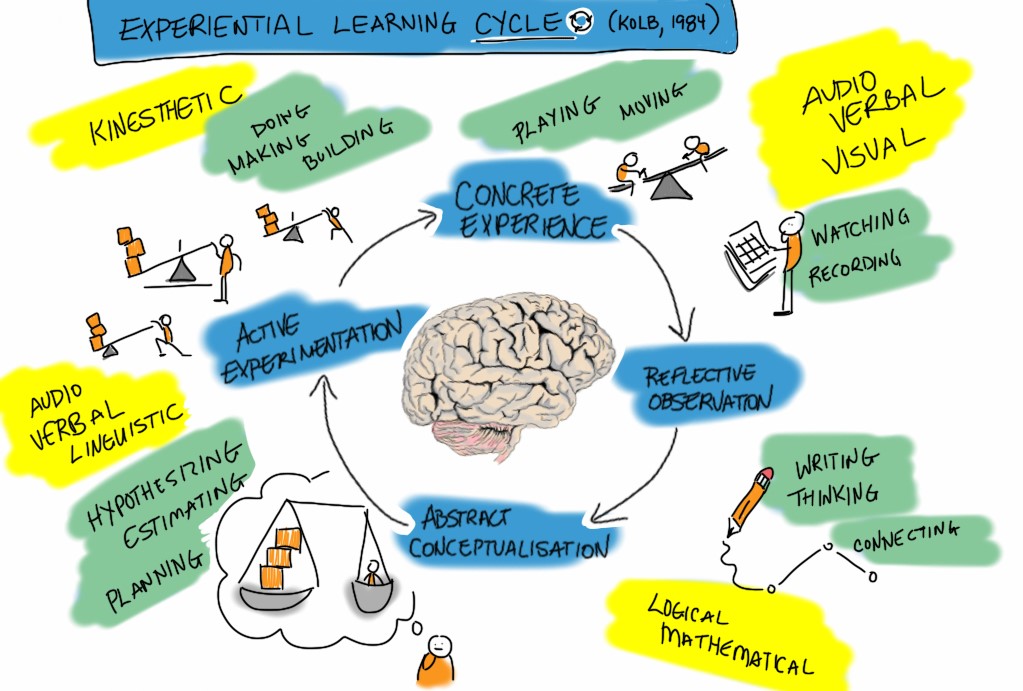-1.png)
EtonHouse Singapore

Source: Flickr
In its simplest form, experiential learning means learning from experience or learning by doing. Experiential education first immerses learners in an experience and then encourages reflection about the experience to develop new skills, new attitudes, or new ways of thinking.-Lewis & Williams (1994)
A shift from traditional methods and textbooks, experiential learning reflects learning through first-hand experience. It encompasses a range of exercises to associate students with materials, techniques and various skills independently. It will help prepare them for the ‘real world’ as they hone their professional and intellectual skills. These out-of-classroom activities are meant to cultivate them emotionally, socially and physically. For children, it’s all about exploration, creation, and discovery as they interact with their environment. It is an unstructured learning process that requires adult guidance and occurs beyond the indoors. We share some of the benefits of experiential learning.
Experiential learning exposes children to tasks which require critical thinking and problem solving using actual scenarios. They establish methods to tackle the obstacles in their own ways; this enhances their learning experience and allows them to acquire knowledge from different perspectives as they bridge the gap between theory and practice. It also encourages them to enjoy acquiring new skills in an unstructured, interactive and fun way.
Nurtures independent individuals
As children experience their surroundings independently, they are encouraged to think for themselves as they are faced with obstacles or challenges. They learn naturally in their own ways and increase their confidence in the process, making them mentally stronger and giving them a sense of achievement. It also enhances their thought process to completing a task as they analyse and reflect on the ‘What’s, Why’s and How’s, nurturing resilience and grit that helps them to overcome challenges and embrace failure and learn from it.
Builds interest
It gives students the opportunity to find out where their interest lies and cultivate their skills in that direction. As they experiment with various activities, they are exposed to using different sets of skills. Experiential learning also allows them to nurture their talents in areas that appeals to them most.


